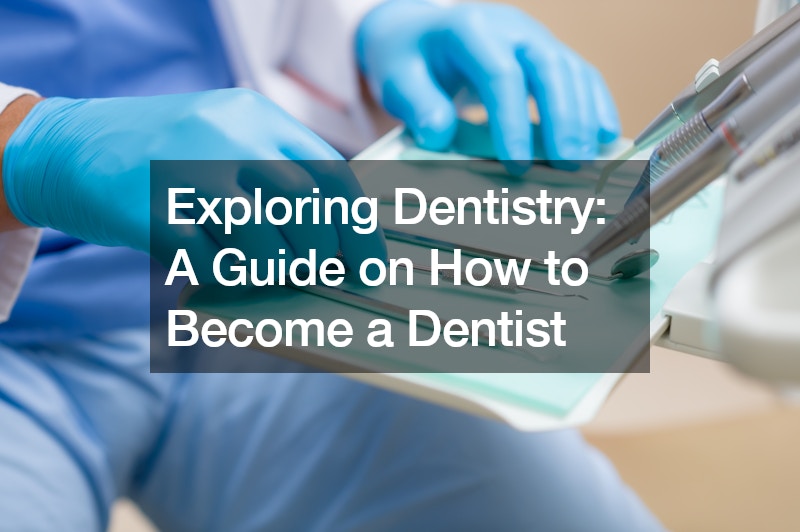Are you fascinated by teeth and interested in pursuing a career with a blend of science, creativity, and entrepreneurship? If so, becoming a dentist might be the perfect path for you. In this comprehensive guide, we will explore the journey to becoming a dentist, debunk common misconceptions, delve into subspecialties within the field, and weigh the pros and cons of this rewarding profession.
What is Dentistry?
Dentistry is a specialized field of medicine focused on the diagnosis, treatment, and prevention of conditions affecting the teeth, gums, and jaw. While many dental issues are preventable, they remain prevalent worldwide.
According to the 2019 Global Burden of Disease Report, untreated tooth decay in permanent teeth affects over 3 billion people annually, highlighting the crucial role dentists play in global health.
Beyond routine cleanings and fillings, dentists perform a wide range of procedures, from minor surgeries to addressing temporomandibular joint (TMJ) disorders. Practice settings vary, including private practice, dental service organizations (DSOs), and public service, each with its unique dynamics and patient populations.
Dispelling Myths about Dentistry
Misconceptions about dentistry abound, including the belief that it’s a fallback for those who couldn’t get into medical school. In reality, dentistry offers distinct advantages and attracts individuals passionate about oral health. While it’s true that dentists enjoy a favorable work-life balance and lucrative earning potential, they also shoulder the responsibilities of running a business and managing overhead costs.
Contrary to popular belief, dental school admissions are highly competitive, with rigorous academic and extracurricular requirements. Success hinges on achieving high grades, scoring well on the Dental Admissions Test (DAT), and demonstrating aptitude in personal attributes and experiences.
How to Become a Dentist
Becoming a dentist typically involves four years of college followed by four years of dental school. Prospective students must complete prerequisite courses in biology, chemistry, physics, and other subjects in addition to excelling on the DAT. While some accelerated programs exist, they are less common.
After dental school, graduates must obtain state licensure, which may involve additional requirements depending on the jurisdiction. Despite the challenges, dentistry offers a fulfilling career path for those passionate about improving oral health and enhancing patients’ quality of life.
Subspecialties in Dentistry
Dentistry offers various subspecialties for those interested in further specialization. Orthodontics focuses on correcting malpositioned teeth and jaws, while endodontics deals with issues related to dental pulp and root canals. Oral and maxillofacial surgery encompasses surgical procedures involving the face, jaw, and oral cavity.
Prosthodontics involves replacing missing teeth with appliances like dentures and implants, while periodontics focuses on the gums and supporting structures. These subspecialties offer opportunities for dentists to refine their skills and cater to specific patient needs.
Pros and Cons of Dentistry
The allure of dentistry lies in its blend of clinical expertise, patient interaction, and entrepreneurial freedom. Dentists have the autonomy to shape their practices and positively impact patients’ lives by alleviating pain and enhancing smiles. The profession also offers financial stability and the potential for career growth.
However, dentistry comes with its challenges, including substantial student loan debt, especially in high-cost areas. Running a successful practice requires not only clinical proficiency but also business acumen and management skills. Additionally, dentists may face physical strain from prolonged periods of patient care and procedure-based work.
Is Dentistry Right for You?
Choosing a career in dentistry requires careful consideration of your interests, strengths, and career goals. If you are passionate about oral health, enjoy working with your hands, and value the opportunity to make a positive impact on others, dentistry may be an excellent fit for you.
Ultimately, becoming a dentist offers a fulfilling career path with opportunities for professional growth and personal satisfaction. By exploring the field of dentistry and understanding its intricacies, you can make an informed decision about whether it aligns with your aspirations and values.
In conclusion, dentistry offers a dynamic and rewarding career path for those passionate about oral health and patient care. By embarking on this journey, you can join the ranks of dedicated professionals committed to promoting dental wellness and transforming lives—one smile at a time.
.





